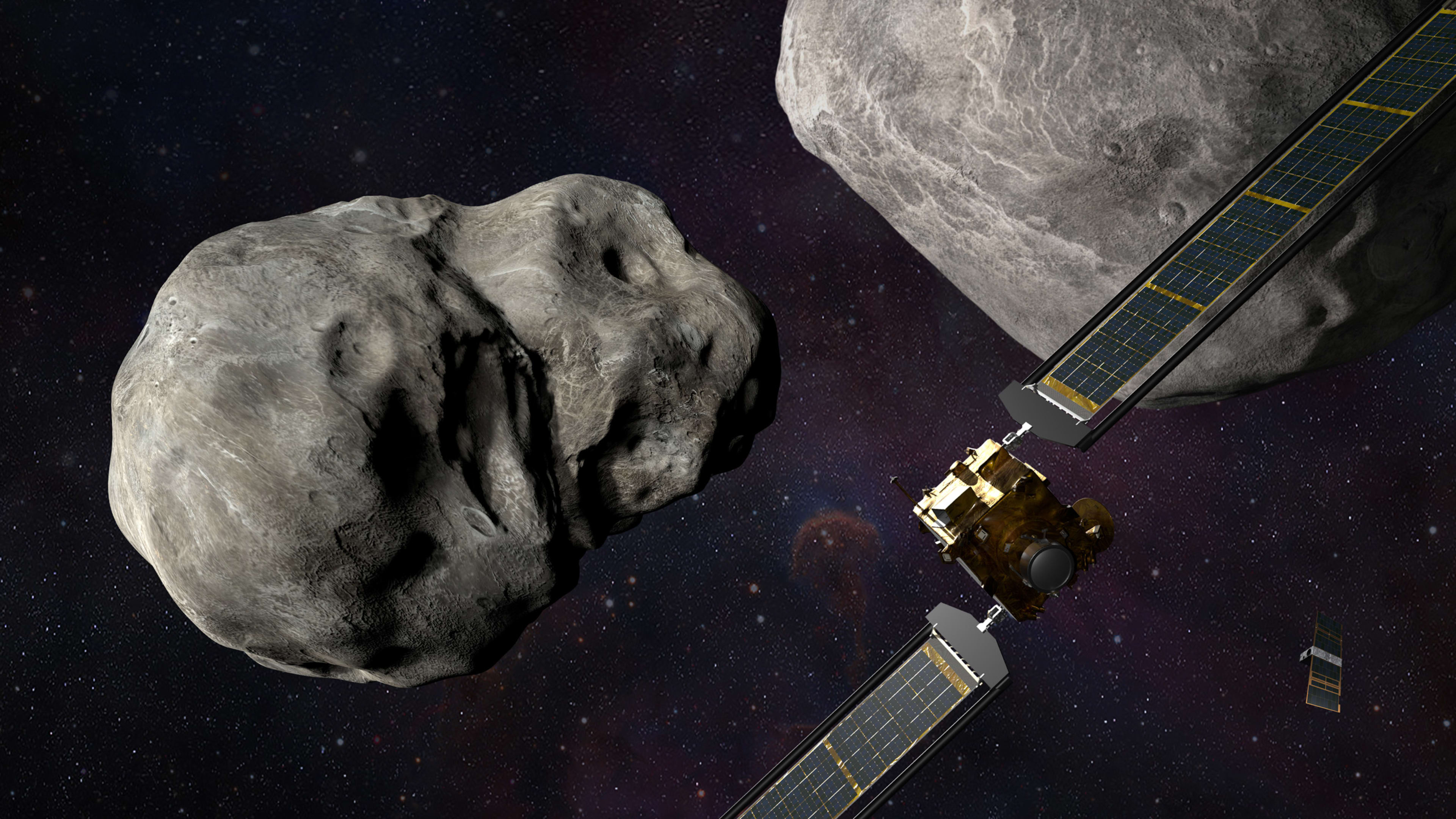When it comes to where NASA should be focusing its attention these days, Americans are placing a bigger emphasis on Armageddon than Artemis.
Results from a Pew Research Center poll, released Thursday, show people think monitoring asteroids that could potentially hit Earth should be a top priority for the space agency. Relatively few, meanwhile, think sending astronauts to the moon or Mars should be NASA’s chief concentration.
The study, which polled 10,329 adults, is a wide-ranging look at Americans’ views on space, including everything from tourism to exploration. And when asked about top priorities, the sentiment heavily favored Bruce Willis over Buzz Aldrin.
Some 60% of those surveyed said monitoring asteroids and other objects that could strike the Earth should be the top priority (another 30% listed it as an important one). Monitoring the Earth’s climate system was the second item on the poll’s priority list, with 50% saying it should be at the top, followed by conducting basic scientific research (40%), and developing technologies that could be adapted for other uses (35%).
Human exploration of the moon was all the way down in eighth place on the list, with just 12% saying it should be the top priority. Mars exploration came in ninth with 11%.
The survey, of course, comes as NASA prepares for the late 2024 Artemis II moon mission, which aims to put astronauts into lunar orbit. The next mission, which would take place in either 2025 or 2026, will be called Artemis III—and will land astronauts on the lunar South Pole, with the assistance of SpaceX’s Starship, returning humans to the surface.
The moon, of course, isn’t the final destination. NASA hopes, long term, to learn the best ways to live, work, and survive in hostile outer space conditions. That will make crewed missions to Mars feasible by the mid-2030s.
Americans, though, see it as a lesser priority than they did five years ago, when both destinations received higher marks (13% for the moon and 18% for Mars).
While they might not be quite so moon-eyed for lunar travel at the moment, people still definitively believe it’s essential for NASA to continue to be involved in space exploration, with 69% of respondents saying it’s critical that the U.S. be a leader in the field. And they’re bullish on private space companies, giving them high marks on building safe and reliable spacecraft, contributing to space exploration, and opening up space travel to a wider audience.
The size of that audience, though, might be smaller than Richard Branson, Elon Musk, and Jeff Bezos believe it to be.
“When it comes to interest in space tourism, more Americans say they would not be interested in orbiting Earth in a spacecraft (65%) than say they would be interested in this (35%),” wrote Pew. “Interest is down 7 percentage points from 2018, when 42% said they would definitely or probably be interested in this.”
Long term, though, they’re a bit more optimistic: 55% of the people surveyed said they expect trips to outer space will be routine within the next 50 years.
Recognize your brand’s excellence by applying to this year’s Brands That Matter Awards before the final deadline, June 7.
Sign up for Brands That Matter notifications here.
